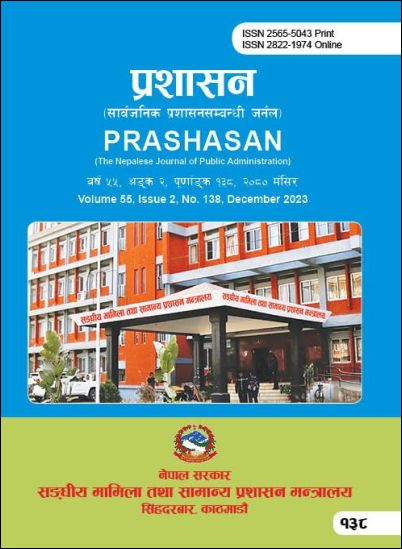Do Bilateral Relations Affect the Treatment of Migrant Workers? A Study of Nepal
DOI:
https://doi.org/10.3126/prashasan.v55i2.63540Keywords:
migrant workers, bilateral relations, human rights, diplomacyAbstract
Unfair treatment of migrant workers is a major problem in the migrant governance system. Migrants often endure harsh working conditions, poor wages, and in some cases, untimely deaths. This brings the question, "What can countries do about the poor treatment of their people in destination countries?” This research analyzes the role of bilateral relationships between countries and concludes whether stronger bilateral relations affect the condition of migrant workers in destination countries. The hypothesis is that bilateral relations do not matter but the destination country's domestic human rights condition is a bigger determinant of migrant treatment. The case studies of Malaysia and Japan in relation to Nepal through a series of quantitative and qualitative analysis however disproves the hypothesis and shows that bilateral relations do matter in determining the treatment of migrant workers.
Downloads
Downloads
Published
How to Cite
Issue
Section
License
- The copyright of published materials of the journal remains with Ministry of Federal Affairs and General Administration.
- The published article cannot be reproduced or copied commercially by any person or institution but it can be used non-commercially for academic, research and training purpose providing proper citation is given.




